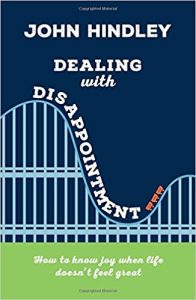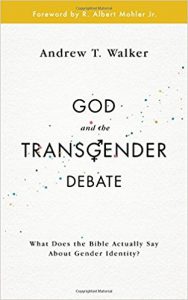Proclaimer Blog
With Added Plussness

Last week I had the tremendous privilege of getting to go on the Cornhill Plus Conference. This is a four day conference which kicks off the beginning of every new Cornhill Plus year. It is an opportunity for teaching, fellowship, prayer and reflection, as well as setting the trajectory for the coming years individual learning programme.
It was a small but eclectic mix of people, some who are in their second and third years of Cornhill Plus, a couple who were new to it. They also came from a variety of different ministry situations, student workers, youth workers, assistant ministers and pastoral assistants. It was a great time in the idyllic settings of Hothorpe Hall near Market Harborough.

The main topic for the four days was Leadership, with Bible studies on 1&2 Timothy and two sessions of reflections from Richard Underwood the long time, soon to retire Pastoral Director at FIEC. He spoke very compellingly on John 13 with 5 challenges for leaders.
We also had a book review session, a discussion around A Better Story by Glynn Harrison, walks in Foxton Locks and some weird and wonderful board games. It really was a fruitful and edifying time.
Huge thanks to Steve Wilmshurst for all his work in putting the conference together. Also please continue to pray for Tim, Nick, Susan, Mel & James as they serve in local churches and study alongside. Please also pray for Cornhill Plus going forward that it would grow and continue to be a real blessing to those forging ahead in gospel ministry.
Proclaimer Blog
The adventures of David Jackman [PT Trustee and former Director of Cornhill]
From September 28th to October 2nd, two of our trustees of PT, John Samuel and David Jackman plan to be in Bielice in Southern Poland for an introductory preaching conference. This will be the third workshop of this sort to be held in Poland under the auspices of the local equivalent of “Together for the Gospel”, in the last 18 months. After David met a group of Polish pastors at EMA 2015, they came across to London for a training workshop and three introductory workshops have now been held in Poland (with translation!) in different areas of the country. There was also a follow-up conference on Teaching Ephesians held this past Spring for those who attended the first of the introduction workshops.

At this upcoming conference, we are expecting about 50 participants, with a varying degree of familiarity with the basics of expository preaching. David and John would particularly value your prayers for many of those attending to be gripped by the sufficiency of Scripture, the power of expository preaching and that ministries and local churches will begin to be renewed through pastors participating in the workshop. Pray for lasting change and for the Lord to raise up some younger men who will themselves become practitioners and trainers of faithful Word ministry.
We are praying that the Lord will guide us at PT to see how we might help similarly in other European contexts to support and equip Biblical preachers who often lack resources, fellowship and the sort of convictions that produce hard work and perseverance. It would be wonderful if a number of well-equipped British pastors were able to adopt a European situation and visit annually for a few years to be able to develop networks of like-minded Bible preachers and even see training programmes developing in places where resources are currently meagre or non-existent.
Supporting this initiative around the world is the purpose of David Jackman’s new video training series “Equipped to preach the Word“. There are currently two modules available online dealing with the basic principles and skills needed for faithful Biblical preaching. Each module has 8 units, each of which comprises a short instructional video talk, followed by downloadable written materials in a workbook format, enabling practical example and training exercises to be worked through in order to practise the principles, either in personal study or as a group. All this is entirely free of charge.

This autumn David is writing the third and final module which will focus on preaching Christ in all the Scriptures and also address issues of relevance and application in preaching. Please pray for God’s clear direction in the contents of both video script and the workbook and that the editing and filming will be provided for financially, as this project is funded separately from central PT funds.
So far we know of 2,000 downloads of workbooks, which is at least an indication of intention to use the materials, nearly 50 countries have been involved. The material is also readily available as a USB stick which can be obtained on request from the PT office. Visit the PT website.
Proclaimer Blog
The adventures to Neil Watkinson [International Director]
In March this year, PT’s International Director, Neil Watkinson, visited five countries in Southern and Eastern Africa, to look at various preaching and Bible training colleges and initiatives which have connections with PT.

His first stop was at Johannesburg Bible College, where several of the staff did Cornhill. Next was the Proclamation Institute Zambia, which is only in its second year but has grown quickly. (A former Cornhiller, Chris Hawthorne, and his family are due to move there next summer).
In Rwanda, Neil caught up with several Cornhillers who have been running Preach The Word, a weekend-based Bible training programme. They have also planted a new church, rooted in expository ministry, and modelling God’s Word should shape ministry in the local church. Next stop was a visit to iServe Africa, in Kenya’s capital Nairobi, seeing more Cornhillers applying what they learned from their training in the UK. The final few days of the trip were spent in Kampala at Living Word Uganda.

Neil said: “A common challenge for these gospel workers and teachers is the prevalence of the so-called ‘prosperity gospel’. I’d been aware of this false teaching, but hadn’t realised just how widespread it is, and how much of the African church is affected by it. Thankfully this is being matched by an eagerness among young preachers and teachers who want to understand and teach the Bible well. It was encouraging to see firsthand the vital work that local and overseas trainers are doing. Please pray for the continuance and propagation of such faithful Bible training and godly leadership.”
In the coming months Neil will be travelling to SE Asia again to equip Bible teachers and preachers, alongside others.
Neil is also running some Cross Cultural Preaching Training at Willcox House. The September date is full, but there are still a few places left on the training day on the 11th October, see the website for details…
Proclaimer Blog
Dealing with Disappointment – [John Hindley]
Written by the same author as the excellent Serving without Sinking & You Can Really Grow. Dealing with Disappointment takes an honest look at an issue that faces many, if not all, Christians. What do we do when we feel that things just aren’t turning out the way we wanted or expected?
Taking what John Hindley describes as the ‘disturbing, intriguing and attractive‘ opening to Ecclesiastes as his starting point, the book falls into two halves. Six short chapters tackle our perspective on disappointment, with a very helpful focus on reorienting our thinking in light of Christ’s return and the new creation. Then there are a further six chapters considering specific areas of life where we might be disappointed, including disappointment with ministry, ourselves and our situations.
The book is particularly strong on what you might call ‘ordinary disappointment’ – the general corrosive feeling that life could or should be better. The baseline level of disappointment that is bubbling away under the surface of many of our lives, unrealised dreams, unfulfilled longings, uneventful lives. This book would be a great accompaniment alongside something like Christopher Ash’s book Job: Out of the Storm. Dealing with Disappointment a great aid in coping with ordinary disappointment and Out of the Storm really diving into deep and tragic disappointment, they would make a very potent pair.

I loved the kind, pastoral and down-to-earth way in which John Hindley writes (he is unsparing about his own struggles), making this a real and easy book to pass on to others. It’s also a book written with discussion in mind, and would suit book groups or home groups looking to read a Christian book together.
Take the home group challenge suggested at the end of the book if you dare!
Useful for: Pastors and specific people who are disappointed with life, also useful for people involved in pastoral care.
Reading level: Very accessible and easy to read.
Length: 160 pages
Price: RRP £7.99
ISBN: 9781784981204
Publisher: The Good Book Company
Rating: ****
Cautions: might be a bit superficial for those wrestling with deep and long term disappointments/regrets.
Review by Elisabeth Jelfs
Proclaimer Blog
God and the Transgender Debate – [Andrew T. Walker]
Before a Tsunami hits the tide goes out a long way. When you see the tide go out it is time to get ready for the wave to hit.

All too often the Christian church has waited for the wave to hit before thinking through the issue at hand. For the last 30 years we have all too often been playing catch up and reacting to societal shifts rather than proactively applying Biblical wisdom to the twists and turns of cultural trends.
However, with the fluid nature of society in our present time, we are very grateful to thinkers who are helping get on and even ahead of the curve. Forewarned is certainly forearmed when a shifting society starts to slide.
Andrew T. Walker in his meaty book, ‘God and the Transgender Debate’, has done us a great service in helping us think through the latest wave that is breaking in our Western World. Andrew serves as the Director of Policy with the Ethics and Religious Liberty Commission and is well positioned to write such a volume.
It is best described as a book in 3 parts.
After introductory material giving the lay of the land, Andrew dives straight into Genesis 1-3 and gives a detailed overview of human sexuality, God’s good design and the catastrophe and confusion that ripples out from the fall. This section is thoroughly Biblical, very clear and helpful. It says nothing particularly new but does a great job in showing how gender dysphoria is symptomatic in this sin infected world. There is also some really good material here on being made in God’s image and all that that means. Chapter 7 then fast forwards to the hope of a glorious future beyond the frustration and confusion of this world, all available in Jesus Christ. It is a compelling chapter that moves beyond coping and managing to discipleship, wholeness and hope.
Having laid this Biblical foundation Andrew then gets very pastoral firstly helping the reader think through how to love and serve gender dysphoric people both as individuals and also as churches. These are deeply convicting pastoral chapters and though they are specifically honed on the subject of transgender, the principles that Andrew highlights have much broader application. This section of the book is great and very thought provoking.
The final section of the book moves very specifically to practical things. Through case studies and worked examples Andrew starts to explore what repentance looks like, how to speak to children of various ages about these issues, whether you should make gender neutral toilets in your churches and other tough questions that are thrown up by this complex issue. Whilst you may not agree with all his conclusions, Andrew certainly shapes and sharpens thinking both with his clarity and depth of application.

I think in Western Society the tide is well and truly out and already the waves are beginning to break as the latest Tsunami of societal disorder begins to flood in. This book is of great value and help in thinking through this issue, it is informed, pastoral and practical. It filled in gaps in my knowledge and stretched my thinking. It is Biblically robust, well reasoned and sensitive. This is by far the most comprehensive book I have read on the transgender debate from a Christian viewpoint, and I would heartily recommend it to pastors, congregation members and the chapter on speaking to children to every parent in your church.
Whilst it is 174 pages long it is very well written and extremely readable.
Proclaimer Blog
God in Public [N.T. Wright]
In God in Public, the eminent New Testament scholar and former Bishop of Durham, Professor N.T. Wright attempts to utilise the Christian gospel for the political challenges of the modern world.
Wright sets the scene by describing, “a deep uncertainty about who we are and what we’re here for, and I suggest that this malaise is directly linked to the banishment of God from the public square two hundred years ago” (p2). And so in what is essentially a collection of lectures and talks, Wright seeks to reintroduce God and the Bible into the public sphere.
A highlight of the book is Wright’s insightful survey of intellectual and political history. The critique of secularism and the way he tracks the progress of the Western Enlightenment narrative is compelling and he pulls no punches in a damning indictment of Western democracy. It’s a refreshing antidote to the New Atheist rhetoric of our age (“religion” is the root of all evil) and Wright seeks to create a space for the gospel to provide clarity and a fresh sense of direction for public life.
To those concerned that this all sounds rather abstract, Wright duly supplies the concrete and practical examples to ground his discussion of “God in Public”. He uses examples of churches “doing God in public,” i.e. those looking after and defending the rights of asylum seekers, supporting the homeless etc. There are also lengthy examples given of Christian voices on the national and international stage. Wright rejects the privatisation of religion in favour of a church calling authorities to account and being active in society, particularly in defending the rights of the poor and marginalised. This is all framed with the Christian’s vocation in bringing to bear the “present-day meaning of Jesus’ universal kingship” and how Christians should be advancing Jesus’ kingdom project in the world. I reserve comment on Wright’s theological enterprise until later in the review, but, insofar as it seeks to dissuade the church from sticking its head in the sand or retreating underground, it serves as a valuable reminder for Christians to be a light to the world.
For those interested in the more philosophical underpinnings of today’s (post)modern world, Wright offers a fascinating theological response to the ills of postmodernism. After exposing the contradictions in postmodern theory and its treatment of the Bible, Wright ingeniously utilises the terms of the debate to introduce the Bible as the great meta-narrative that challenges and subverts other worldviews. He sketches a biblical challenge to post-modernity, in the form of a meta-narrative of love that cannot be deconstructed into selfish power (because it is quite the opposite), and a biblical account of human knowing (an epistemology of love) that goes beyond the polarisation of objectivism and subjectivism.
Wright believes that a fresh engagement with the biblical narrative will provide an account of human knowing and truth that the “post-postmodern” world so desperately needs. It’s a bold and intellectually stimulating part of the book. It does however run the risk of overwhelming those not overly familiar with the terms and concepts, and also on the other side, it risks disappointing those well versed who will see it as far too sketchy and lacking the necessary detail to expound a thoroughly convincing philosophical argument.
How we as Evangelicals should approach Wright’s theology in the book deserves an essay in itself, but I can offer some cursory remarks here. The truth Wright is calling Christians to speak to power seems a diluted, politicized gospel that does not emphasize the centrality of the Cross and the related doctrines such as atonement for sin. Rather tellingly, Wright states that “if the church can translate what we believe Jesus would say into the language, and the coherent arguments, of the wider world then such obedience can become a possibility” (p.72). Thus Wright’s primary aim is not to make Christ known; it is rather to bring about just and merciful rulers and authorities, and if that means stripping out what is distinctly Christian to achieve that end, then so be it. Despite Wright calling rulers to justice and mercy “within the framework of the historical victory of Jesus in his death and resurrection and of the future, coming, final victory of God over all evil” (p.72), these rulers need not recognise their own sin or Jesus as their Lord and Saviour. Surely this is putting the cart before the horse and blurring the fruit of the gospel and the root of the gospel.
To bring about God’s kingdom on earth as it is in heaven, we first need to bring these rulers to the foot of the Cross. It is by the Cross-Centered preaching of the gospel that brings the truth that will ultimately save the world, rather than a diluted gospel that will merely bring temporal social justice and keep authorities in check.
When sin is mentioned, it feels like it is for the sake of completion as opposed to it being a central and foundational part of biblical truth. Wright even goes as far as to suggest a pluralistic, “fresh grasp of God’s truth” (p.95) with Christian, Jewish and Muslim voices at the table speaking for “God” in the public square.
Furthermore, Wright indirectly targets and seeks to unsettle traditional evangelicalism at various points in the book. For example, he rather disparagingly describes how “some people seem to yearn for the days when things were nice and simple, when a supposedly biblical gospel of salvation from sin and going to heaven could be preached” (p.37). He hangs out to dry a “type of conservative Christianity represented by the “not of this world” viewpoint” (p.64); he provocatively tries to relegate atonement theology in the gospels; admits to advocating a “controversial” (p.67) reading of Scripture as part of his world-affirming, Jewish messianic framing of the Christian narrative that he stands against “semi- or crypto- gnostic readings”. He takes various other swipes against what are essentially caricatures of Evangelical standpoints (e.g. “personal salvation”, “going to heaven” etc.).
Though this book is not from the conservative evangelical stable there is still much value to be gleaned from this book and Wright’s theology. Wright offers a vivid, rich account of the resurrection and he is very helpful on eschatology and new creation in the present day vocation of Christians to be image-bearers and stewards of creation. Wright also provides a helpful analysis of God’s sovereignty in the midst of tyrannous order, and a particularly intriguing section on how Jesus’ death shines light on the concepts of truth and authority.
Overall, for those wanting a bold and intellectually stimulating theological response to “we don’t do God” politics, Wright’s God in Public will not disappoint. For those disheartened by the marginalisation of God and the church in the public sphere, this book will provide plenty of resources for fruitful engagement and insight. However, while it might introduce a fascinating and at times compelling political theology, people, as with everything should read discerningly and be cautious of wholeheartedly adopting Wright’s contentious biblical framework.
I close with some words from the Apostle Paul from 1 Corinthians 2:2-8 – And I, when I came to you, brothers, did not come proclaiming to you the testimony of God with lofty speech or wisdom. For I decided to know nothing among you except Jesus Christ and him crucified. And I was with you in weakness and in fear and much trembling, and my speech and my message were not in plausible words of wisdom, but in demonstration of the Spirit and of power, so that your faith might not rest in the wisdom of men but in the power of God. Yet among the mature we do impart wisdom, although it is not a wisdom of this age or of the rulers of this age, who are doomed to pass away. But we impart a secret and hidden wisdom of God, which God decreed before the ages for our glory. None of the rulers of this age understood this, for if they had, they would not have crucified the Lord of glory.
By Simon Jones
Proclaimer Blog
The Garden, The Curtain and The Cross [Carl Laferton]
The Garden, The Curtain and The Cross is a wonderful, child friendly Bible overview explaining that it is wonderful to live with God.
From before the beginning to the hope of the gospel it teaches the entire sweep of history from the perfection of Eden, through the banishment of the fall, to the erection of the temple, through the terror of the cross and on into the hope of in Jesus now being welcome to live with God and be his friends again.
It is a very clever book and uses language that children are very familiar with, the ideas of Keep Out and the explanation of Sin as wanting to live in a world without God in charge are very clear and accessible to young people.
This is a great gospel book for young children. Giving them a clear understanding of the grand narrative of the Bible is important and The Garden, The Curtain and The Cross is a wonderful tool with which to do that. I cannot recommend it enough and besides great content it is one of the most aesthetically pleasing children’s books I have read.
Proclaimer Blog
God’s very Good Idea – [Trillia Newbell]
Have you ever thought about teaching your children about the doctrine of humanity? You should!
If you want to then God’s very Good Idea is a wonderful place to start. It is a fantastic children’s book showing how the diversity of humanity was God’s very Good Idea, it deals with how every human being is different but also the same as those made in God’s image. It tackles the fall and is hope saturated as diversity is bought to unity through the death and resurrection of the Lord Jesus.
This is a unique and fabulous book, as close to a must read you can get in the children’s genre. Not only is it clear, it is also clever and very colourful.
Proclaimer Blog
The One O’Clock Miracle – [Alison Mitchell]
The One O’ Clock miracle is a marvelous retelling of the miracle recorded in John 4, where Jesus heals the official’s son by the power of his Word from a great distance.
The book is simple, beautifully illustrated and very engaging, all the ingredients you want in a children’s book. It also teaches one big truth which is that ‘Jesus speaks with the authority of God,’ and applied that the official took Jesus at his Word.
The book has a lovely refrain in it, ‘he walked and walked – and sometimes ran,’ which helps keep children engaged and affords lots of opportunity to join in with the reading.
I really loved this book, it bought a smile to my face and joy to my heart. It is a real page turner and one that teaches children about Jesus in a fun, bright and powerful way. If you need books for a Sunday school prize-giving, to be in the book corner of a baby-toddler group or an increased repertoire on the bedtime story shelf then look no further than the One O’clock Miracle.

Proclaimer Blog
The Storm That Stopped [Alison Mitchell]
Good children’s books are a wonderful resource to get into the hands of families in your church. When bedtime stories are the highlight of the evening and the words and pictures generate a combination of intrigue, excitement as well as learning then everyone is on to a winner.
The Storm that Stopped is a beautiful, simple and wonderful illustrated hardback book. It is a retelling of the Calming of the Storm with a really helpful conclusion showing how Jesus does things that only God can do. The children are helped to see who ‘Jesus really is’.
The story is well told and the pictures are mesmerising, I can see this book being a favourite that is constantly pulled down from the bookshelf at bedtime. This story, coupled with these illustrations and a dramatic parental narration alongside will delight and disciple young children in a potent combination.
This is a beautiful gift, great for Sunday school prize givings, Baby and Toddler groups as well as for the church bookstore to help young children learn life changing truths.






